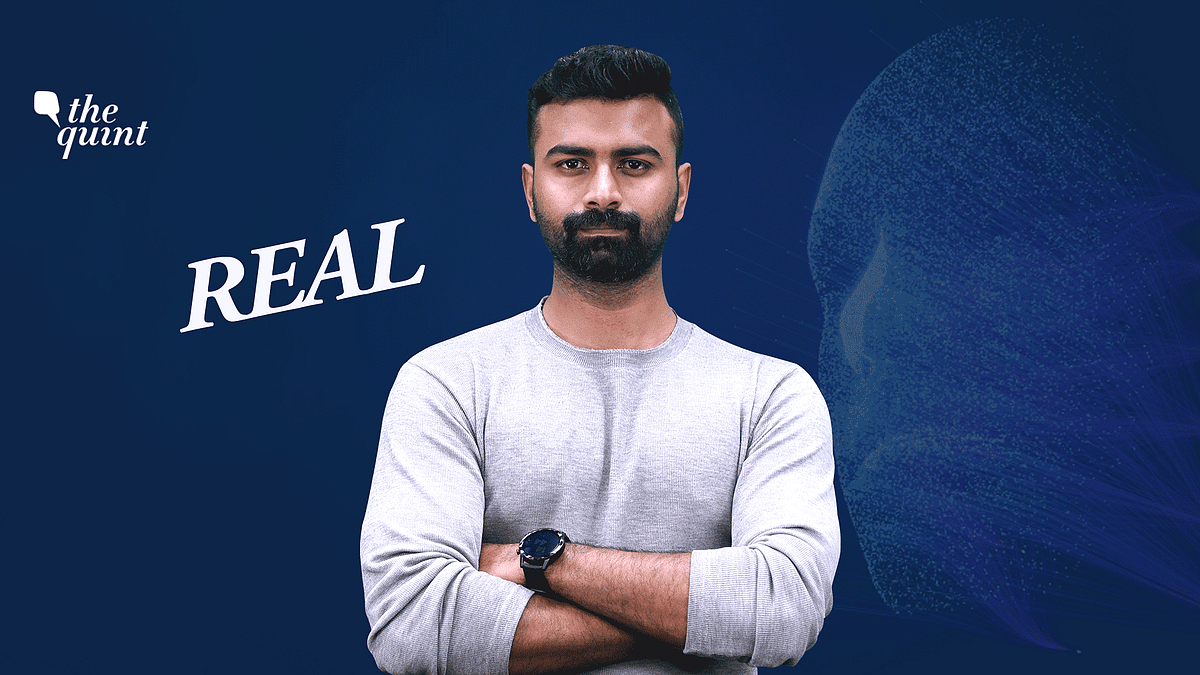Alexandra Daddario, a household name in Hollywood, has gained immense popularity for her roles in blockbusters like "Baywatch" and "San Andreas." Her stunning looks and charismatic screen presence make her a favorite among fans and creators alike. However, with the rise of deepfake technology, her image has been increasingly used in manipulated content, including gifs. These gifs, often shared across social media platforms, raise questions about the ethical boundaries of AI-generated media. While some view these creations as harmless entertainment, others argue that they infringe on personal privacy and could have long-term consequences for celebrities and the public alike.
As the conversation around deepfake gifs grows, it is essential to understand the technology behind them and its potential misuse. Deepfake technology uses advanced AI algorithms to superimpose one person's face onto another's body, creating hyper-realistic videos or images. While this technology has legitimate applications, such as in filmmaking and special effects, its misuse in creating unauthorized content like the "Alexandra Daddario deepfake gif" poses significant challenges. This article delves into the phenomenon, exploring its origins, ethical concerns, and what it means for the future of digital media.
Table of Contents
- Who is Alexandra Daddario?
- What is Deepfake Technology and How Does It Work?
- Why Are Ethical Concerns Surrounding Deepfake Gifs Growing?
- How Do Deepfake Gifs Impact Privacy and Consent?
- What Are the Legal Implications of Alexandra Daddario Deepfake Gif?
- How Are Social Media Platforms Responding to Deepfake Content?
- What Does the Future Hold for Deepfake Technology?
- Can We Prevent the Misuse of Deepfake Technology?
- How Does Deepfake Technology Affect Celebrities Like Alexandra Daddario?
- Conclusion: Navigating the Complex World of Deepfake Gifs
Who is Alexandra Daddario?
Alexandra Daddario is an American actress who has captivated audiences with her performances in both film and television. Born on March 16, 1986, in New York City, she began her acting career at a young age and quickly rose to fame with her breakout role as Annabeth Chase in the "Percy Jackson" film series. Her talent and versatility have earned her a loyal fan base, and she continues to be a prominent figure in Hollywood.
Read also:Jennifer Tilly Net Worth Unveiling The Wealth Of A Hollywood Icon
| Full Name | Alexandra Anna Daddario |
|---|---|
| Date of Birth | March 16, 1986 |
| Place of Birth | New York City, New York, USA |
| Occupation | Actress |
| Notable Works | Percy Jackson & the Olympians, Baywatch, San Andreas |
What is Deepfake Technology and How Does It Work?
Deepfake technology is a form of artificial intelligence that uses deep learning algorithms to create hyper-realistic but fake images or videos. The process involves training a neural network on a vast dataset of images and videos of a specific person. Once trained, the AI can superimpose the person's face onto another individual's body or create entirely new content. The result is often indistinguishable from real footage, making it a powerful tool for both creative and malicious purposes.
How Are Deepfakes Created?
Creating a deepfake involves several steps, including data collection, training the AI model, and refining the output. The process begins with gathering a large number of images or video clips of the target individual. These are then fed into a machine learning model, which learns to replicate the person's facial expressions and movements. Once the model is trained, it can generate realistic content, such as the "Alexandra Daddario deepfake gif," with minimal effort.
Why Are Ethical Concerns Surrounding Deepfake Gifs Growing?
The rise of deepfake gifs has sparked widespread ethical concerns, particularly regarding consent and privacy. Celebrities like Alexandra Daddario are often targeted by creators who use their images without permission. This raises questions about whether such content violates their rights and what can be done to protect individuals from unauthorized use of their likeness.
What Are the Ethical Implications of Alexandra Daddario Deepfake Gif?
One of the primary ethical issues with deepfake gifs is the lack of consent. When someone creates a deepfake gif of Alexandra Daddario, they are using her image in a way she may not approve of. This can lead to reputational damage, emotional distress, and even financial losses for the individual involved. Additionally, the widespread distribution of such content can normalize the misuse of AI technology, further eroding trust in digital media.
How Do Deepfake Gifs Impact Privacy and Consent?
Privacy and consent are at the heart of the deepfake debate. While some argue that deepfake gifs are a form of artistic expression, others believe they infringe on an individual's right to control how their image is used. For celebrities like Alexandra Daddario, the impact can be particularly severe, as their public personas make them more vulnerable to exploitation.
Can Deepfake Gifs Be Used Responsibly?
While the misuse of deepfake gifs is a significant concern, there are potential applications that could be considered responsible. For example, filmmakers and content creators could use this technology to enhance storytelling or create educational content. However, these uses must be balanced with strict ethical guidelines to ensure that individuals' rights are respected.
Read also:Chris Bledsoe Net Worth A Comprehensive Overview Of His Financial Success
What Are the Legal Implications of Alexandra Daddario Deepfake Gif?
The legal landscape surrounding deepfake technology is still evolving. While some countries have introduced laws to address the misuse of AI-generated content, enforcement remains a challenge. Celebrities like Alexandra Daddario may have legal recourse if their image is used without permission, but proving harm can be difficult in many cases.
Are There Laws to Protect Against Deepfake Misuse?
Several jurisdictions have introduced legislation to combat the misuse of deepfake technology. These laws typically focus on issues like defamation, fraud, and non-consensual pornography. However, the global nature of the internet makes it difficult to enforce these regulations consistently, leaving many individuals vulnerable to exploitation.
How Are Social Media Platforms Responding to Deepfake Content?
Social media platforms play a crucial role in the dissemination of deepfake gifs. In response to growing concerns, many platforms have updated their policies to address the issue. For example, some sites now prohibit the sharing of non-consensual deepfake content, while others have implemented detection tools to identify and remove such material.
What Measures Are Being Taken to Combat Deepfake Gifs?
Platforms like Facebook, Twitter, and YouTube have introduced measures to combat the spread of deepfake gifs. These include AI-driven detection systems, user reporting mechanisms, and partnerships with third-party organizations to identify harmful content. While these efforts are a step in the right direction, the rapid evolution of deepfake technology means that new challenges are constantly emerging.
What Does the Future Hold for Deepfake Technology?
As deepfake technology continues to advance, its potential applications are virtually limitless. From entertainment to education, the possibilities are vast. However, this progress also brings new risks, particularly in terms of misinformation and privacy violations.
Will Deepfake Gifs Become More Common in the Future?
Given the increasing accessibility of deepfake tools, it is likely that we will see more content like the "Alexandra Daddario deepfake gif" in the coming years. While this could lead to exciting innovations, it also underscores the need for robust safeguards to protect individuals and society as a whole.
Can We Prevent the Misuse of Deepfake Technology?
Preventing the misuse of deepfake technology requires a multi-faceted approach. This includes technological solutions, legal frameworks, and public awareness campaigns. By addressing the issue from multiple angles, we can mitigate the risks associated with deepfake gifs and other forms of AI-generated content.
What Role Can Technology Play in Combating Deepfake Misuse?
Technology can play a crucial role in combating the misuse of deepfake gifs. For example, AI-driven detection tools can help identify manipulated content, while blockchain technology could be used to verify the authenticity of digital media. These innovations, combined with stricter regulations, could help create a safer online environment.
How Does Deepfake Technology Affect Celebrities Like Alexandra Daddario?
Celebrities are among the most frequent targets of deepfake creators. For individuals like Alexandra Daddario, the impact can be significant, affecting their personal and professional lives. The unauthorized use of their images in deepfake gifs can lead to reputational damage, emotional distress, and even financial losses.
What Can Celebrities Do to Protect Themselves from Deepfake Gifs?
Celebrities can take several steps to protect themselves from deepfake misuse. These include working with legal teams to address unauthorized content, raising public awareness about the issue, and collaborating with tech companies to develop detection tools. By taking a proactive approach, they can help mitigate the risks associated with this emerging technology.
Conclusion: Navigating the Complex World of Deepfake Gifs
The rise of deepfake gifs, including those featuring Alexandra Daddario, highlights the complex interplay between technology, ethics, and privacy. While this technology has the potential to revolutionize various industries, its misuse poses significant challenges. By fostering a deeper understanding of the issue and implementing robust safeguards, we can navigate the complexities of the digital age and ensure that AI is used responsibly. As the conversation around deepfake gifs continues to evolve, it is essential to prioritize the rights and well-being of individuals, both in the public eye and beyond.

